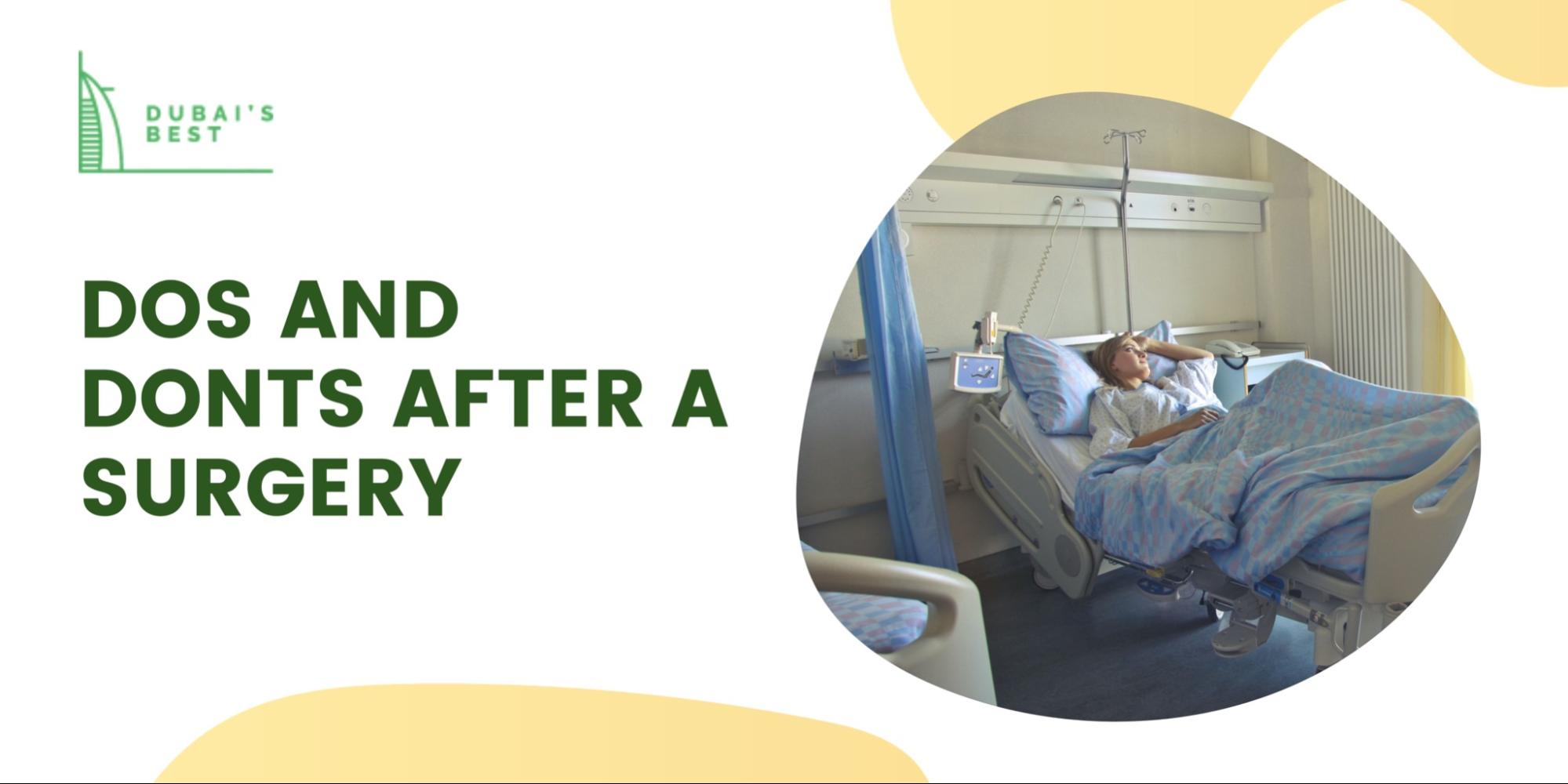Dos and Donts After Surgery
Hey, getting surgery is no joke. It takes a lot of time, effort… and not to mention money.
But the end results are worth it, right? Especially if it concerns your wellbeing.
With that being said, this does not mean that you can do everything after a significant operation. Doctors recommend taking things easy to avoid any complications.
Also, give your body time to heal! Here is our guide on what to do and what not to do after an operation.
Don’t Drive Yet!
The no-driving rule is usually because of the medicine injected into a patient’s body. This is because the anesthesia can impair a person’s motor skills and judgment, which can be a problem during driving.
We recommend hiring somebody to deliver or send things to your workmates or family if necessary.
Another reason why doctors tell you to not drive post-surgery is wounds. If a patient has incision wounds from an operation, they can be re-opened if said person would move around.
The sutures holding the wound in place can open if you move while driving. If you need to travel somewhere, have a family member drive you or hire somebody to do so.
Do Use Pain Medications As Prescribed
Avoiding painkillers actually can slow a patient’s recovery. This is because people in pain will most likely not move a lot to try and counter the pain.
The lack of movement can actually present a higher risk of blood clots, which can further complicate a patient’s condition post-surgery.
Remember to take note of the pain medication prescribed for you and stock them up for your convenience and a faster path to recovery!
Don’t Lift Heavy Objects!
We’ve talked about the no-driving rule, as a patient can open wounds while moving around their car. An adjacent tip to this is to avoid lifting heavy objects.
Healthcare experts usually advise to not lift anything greater than six kilograms for six weeks. Even if you feel great after a week.
This is because you still have a wound that needs healing. Excessive lifting can cause wounds to open and also make the patient susceptible to getting infections.
If there is a need for you to move heavy things (row 1036 – how to move heavy items – – Dubai) such as furniture or other objects, try asking for help!
Do Try To Avoid Infections
Infections can get nasty. Keep your wound dry and change and maintain the dressing as how your doctor would recommend.
Also, take note of how your wound is doing. If you noticed that it’s not really healing properly, tell your healthcare professional instantly.
Tell them if there is pus, excessive bleeding, fever, pain, swelling or redness, or any changes in odor from the wound. These symptoms usually lead to an infection, which needs to be treated as soon as possible.
Don’t Become Constipated
This might sound weird, but this is a piece of very honest advice. Constipation is usually ignored by patients as a common issue that will fade away.
However, if you’ve just had gastrointestinal surgery or take pain relievers, you can encounter this symptom. Regardless: don’t ignore it.
Aside from causing discomfort that nobody wants, it can get worse to the point you cannot use your lower abdominal and pelvic muscles.
Here are some things you can do to prevent constipation: first, increase your water intake. Second, add fiber to your diet to help you with your bowels, which can decrease the chances of constipation.

